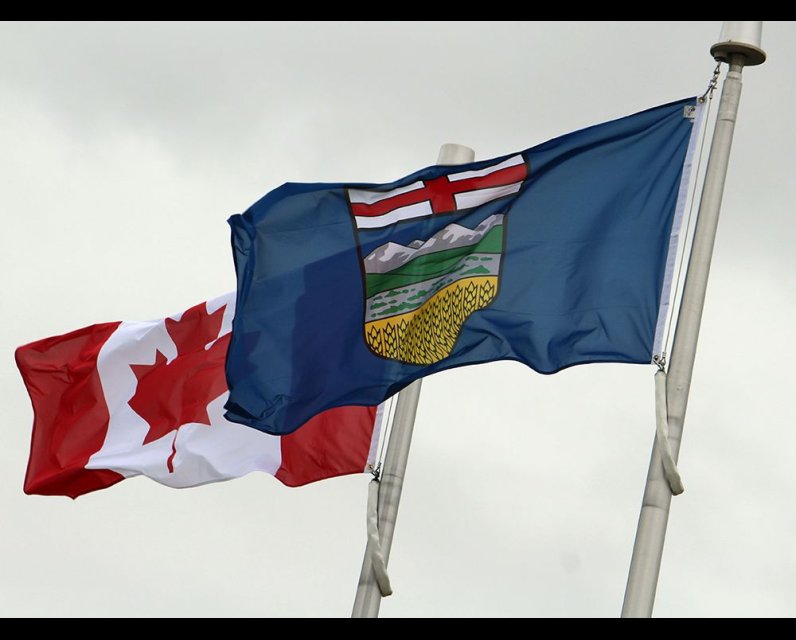Source Feed: National Post
Author: Tyler Dawson
Publication Date: May 8, 2025 - 06:00
More than half of Canadians say Alberta separation should be taken seriously: poll
May 8, 2025

As Alberta lurches towards a potential referendum on seceding from Canada, a majority of Canadians think the threat of separation should be taken seriously.
A new Leger poll for the Association for Canadian Studies shows that 52 per cent of Canadians believe the threats should be taken seriously — a view that’s held most strongly in Alberta itself.
“A lot more Canadians than I might have expected are taking the threat of Alberta separation — think we should take it — very seriously,” said Jack Jedwab, president and CEO of the Association for Canadian Studies. “And what is interesting with that is that they actually think that we should take the threat of Alberta separation more seriously than the threat of Quebec separation.”
While 52 per cent of Canadians think Alberta separation should be taken seriously, 42 per cent think Quebec separation should be taken seriously.
In recent months, Alberta Premier Danielle Smith has warned that the continuation of federal policy deemed unfriendly towards her province would precipitate an “unprecedented national unity crisis.” And, while a referendum on secession hasn’t happened in any province since Quebec’s last attempt in 1995, Smith has promised that if enough Albertans put their signatures on a petition, her government will facilitate it.
In Alberta itself, 63 per cent say the threat of secession should be taken seriously.
The concern level, however, is lower in the rest of the country. Fifty-one per cent of those in British Columbia agree, as do 54 per cent of those in Ontario, Manitoba and Saskatchewan. Quebecers are the least concerned: 46 per cent think it’s a serious threat. Half of Atlantic Canadians believe it’s a serious threat.
The view that Quebec separation should be taken seriously is held most strongly in Quebec at 47 per cent, followed by Ontario at 45 per cent. Thirty-eight per cent of those in British Columbia, Manitoba and Saskatchewan agree it’s a serious threat, while just 31 per cent of Albertans and 32 per cent of Atlantic Canadians think it’s serious.
“Quebecers, they feel the threat of Quebec separation is much more serious than the threat of separation from Alberta, and Alberta is the contrary. Albertans think their threat of separation is more serious than the threat of separation from Quebec,” said Jedwab.
Broadly speaking, a plurality of Canadians believe that the re-election of Prime Minister Mark Carney’s Liberal government will not lead to more national unity. Just 34 per cent believe that it will, compared to the 37 per cent that say it will not. However, a large minority of Canadians — 29 per cent — are undecided on what impact the Liberals will have on national unity.
Albertans believe most strongly, at 52 per cent, that the Liberals will not improve national unity, followed by Manitoba and Saskatchewan at 39 per cent, Quebec at 38 per cent, B.C. at 35 per cent, Atlantic Canada at 34 per cent and Ontario at 33 per cent. In every province, between roughly one-quarter and one-third of poll respondents believe the Liberals will improve national unity.
“It was a polarizing election, whether one likes it or not,” said Jedwab. “And given the regional dynamics of the Conservative party, I think that is giving rise to the view that there’s some challenges going forward with respect to unity, but we’ll have to see.”
These dire views of national unity are held most strongly by those who voted for Pierre Poilievre’s Conservative Party of Canada. Just 17 per cent of Conservative voters believe Carney will improve national unity. Quebecers who voted for the Bloc Québécois are similarly skeptical, with 21 per cent saying national unity will be improved. However, New Democrats (41 per cent) and Liberals (56 per cent) believe the new government will do good things on the national unity question.
Conservative voters are also far more likely to be concerned about Alberta separatism, with almost 64 per cent saying it should be taken seriously. But Liberal voters (48 per cent) and NDP voters (47 per cent) are also concerned, while Bloc voters, at roughly 32 per cent, are the least worried.
“We’ll have to see what the political implications are of that, because some of this is going to be seen as leveraging this type of sentiment to shift political power or political influence in the country,” said Jedwab.
There is a similar partisan divide when it comes to concerns about Quebec separation. Bloc voters, at almost 51 per cent, believe most strongly that it’s a serious threat. Conservative voters are the most sanguine, at 36 per cent, while 44 per cent of New Democrats and 45 per cent of Liberal voters think it should be taken seriously.
The majority of voters do not think there is a legitimate reason for either Quebec or Alberta to separate. Unsurprisingly, Alberta has the highest number of poll respondents (52 per cent) who think that Alberta has good reasons to go. But that view drops off sharply to 37 per cent in Manitoba and Saskatchewan, 34 per cent in Quebec, 32 per cent in Ontario and B.C., and 28 per cent in Atlantic Canada.
Again, support varies widely by partisan affiliation. Fifty-eight per cent of Conservatives think Alberta has legitimate reasons to leave, while 33 per cent of Bloc voters think there are good reasons. Among progressive voters, support is lower: 19 per cent of Liberals see legitimate grievances, as do 18 per cent of New Democrats.
The dynamics are similar with Quebec. Fifty-one per cent of those in La belle province think there are good reasons to leave Canada, but, again, support is limited elsewhere. Just 20 per cent of Atlantic Canadians think Quebec has legitimate reasons, as do 23 per cent of those in Manitoba and Saskatchewan, and 25 per cent of those in B.C. Support is slightly higher in Ontario (30 per cent) and Alberta (32 per cent).
Seventy-nine per cent of Bloc voters say the grievances are valid, compared to 34 per cent of Conservative voters and NDP voters, and 27 per cent of Liberals.
The online survey of 1,626 Canadians was conducted between May 1 and 3. A margin of error cannot be associated with a non-probability sample in a panel survey for comparison purposes. A probability sample of 1,626 respondents would have a margin of error of plus or minus 2.5 per cent, 19 times out of 20.
Our website is the place for the latest breaking news, exclusive scoops, longreads and provocative commentary. Please bookmark nationalpost.com and sign up for our daily newsletter, Posted, here.
A member of an ostrich farming family held back tears as she called on the provincial government to help stop the cull of their 400 birds.The Canadian Food Inspection Agency ordered the cull in late 2024 after an avian flu outbreak, but family spokesperson Katie Pasitney says the animals living on her parents’ farm in Edgewood, B.C., are “healthy” and “happy” now and pose no risk.
May 8, 2025 - 16:44 | Wolfgang Depner | The Globe and Mail
Some OC Transpo riders say they have been left confused because of malfunctioning navigation screens on Ottawa’s Line 2 trains. Read More
May 8, 2025 - 16:43 | Robert Hiltz | Ottawa Citizen
A highly decorated Canadian officer and Afghan war veteran was fined $3,000 and given a severe reprimand for a derogatory comment he made about a British brigadier general. Read More
May 8, 2025 - 16:31 | David Pugliese, Ottawa Citizen | Ottawa Citizen



Comments
Be the first to comment